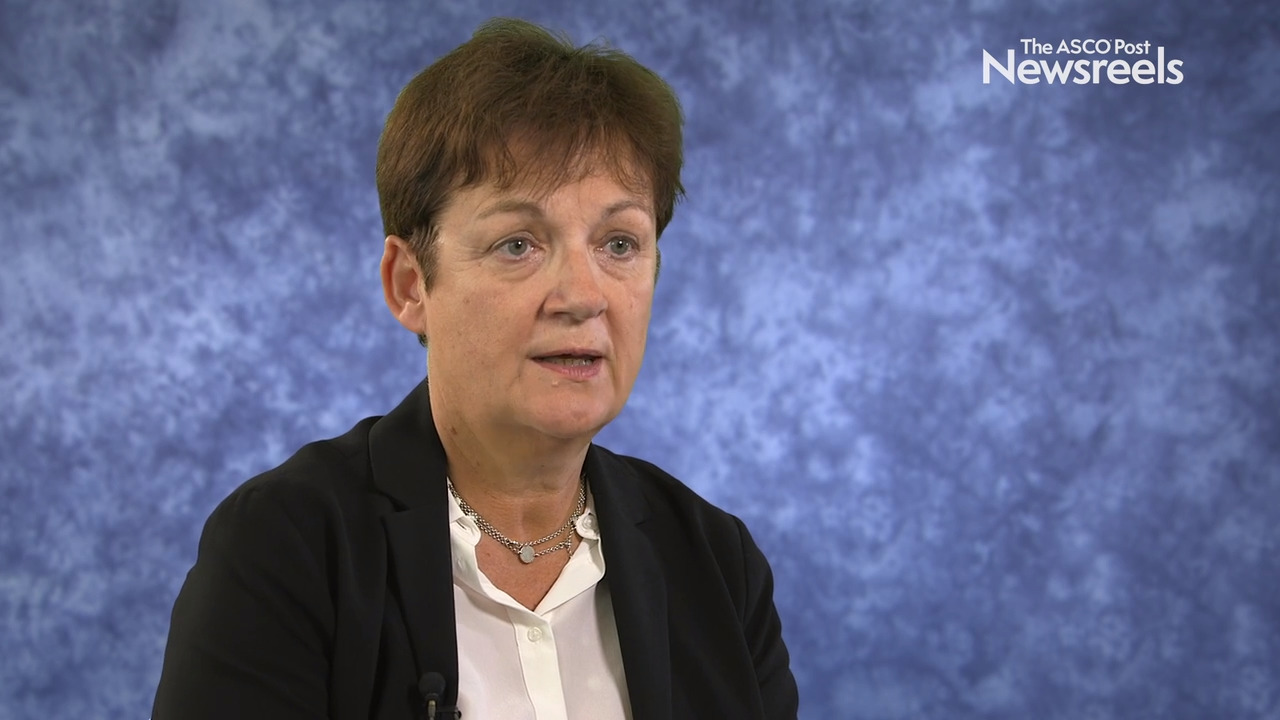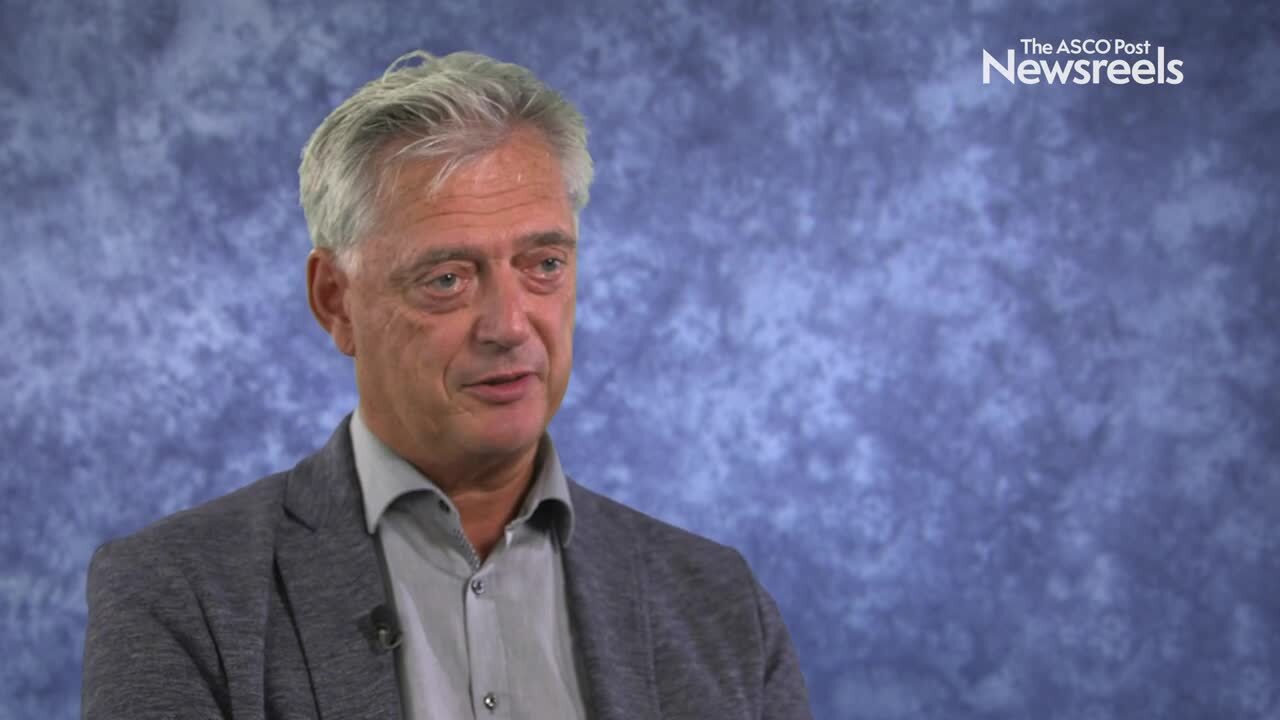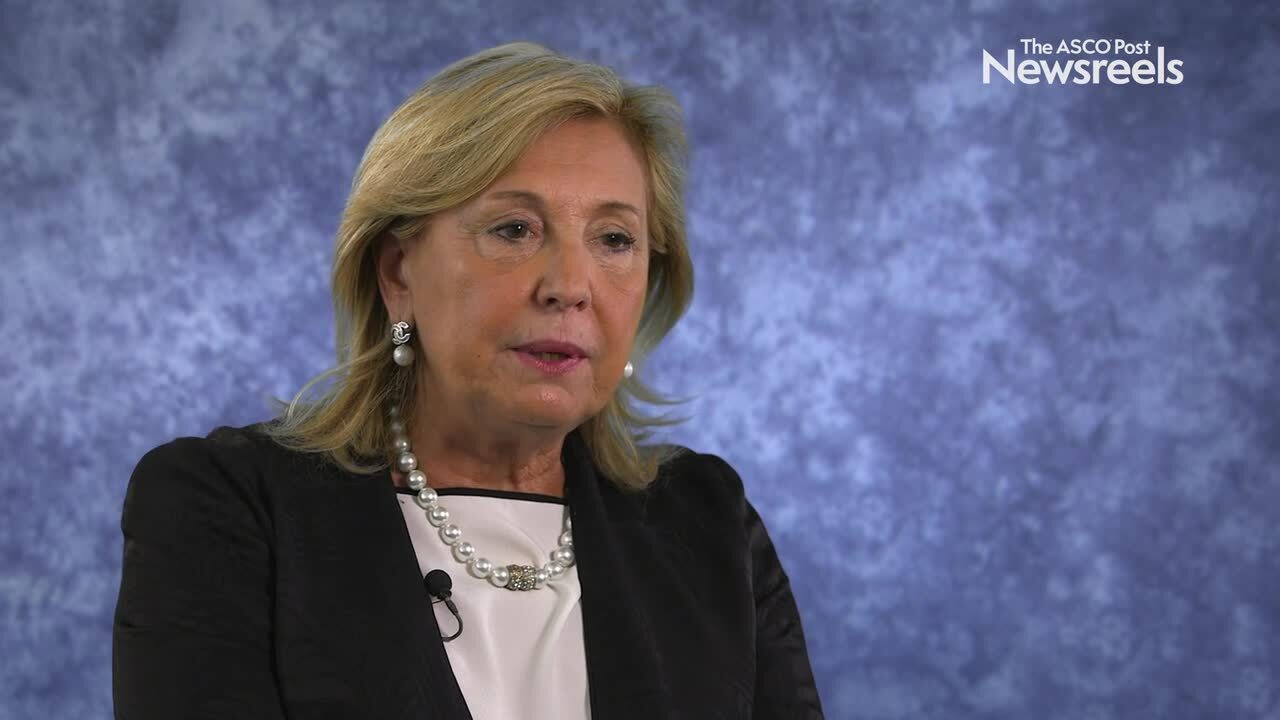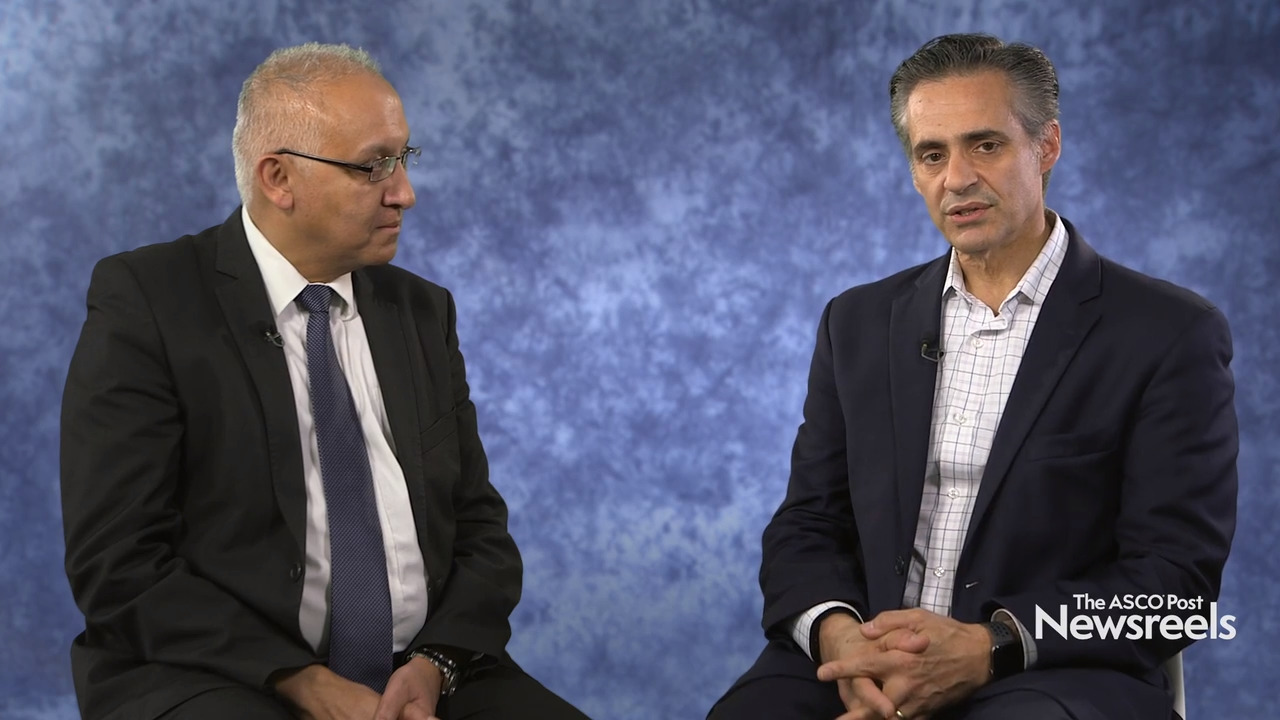Sherene Loi, MD, PhD, and Leisha A. Emens, MD, PhD, on HER2-Positive Breast Cancer: KATE2 Study of Atezolizumab/Trastuzumab Emtansine
ESMO 2019 Congress
Sherene Loi, MD, PhD, of Peter MacCallum Cancer Centre at the University of Melbourne, and Leisha A. Emens, MD, PhD, of UPMC Hillman Cancer Center, discuss overall survival in this phase II study of atezolizumab/trastuzumab emtansine (T-DM1) vs placebo/T-DM1 in previously treated HER2-positive advanced breast cancer (Abstract 305O).
Véronique Diéras, MD, of Institut Curie Paris & Saint Cloud, discusses results from the phase III BROCADE 3 trial, which investigated the PARP inhibitor veliparib in combination with carboplatin/paclitaxel in patients with advanced HER2-negative, germline BRCA–mutated breast cancer (Abstract LBA9).
Ronald de Wit, MD, PhD, of the University Medical Center Rotterdam, discusses study findings which showed that cabazitaxel improved radiographic progression-free survival as well as overall survival in patients with metastatic castration-resistant prostate cancer (Abstract LBA13).
Nicoletta Colombo, MD, of Istituto Europeo di Oncologia, discusses the efficacy of lenvatinib/pembrolizumab in metastatic endometrial cancer. The combination showed antitumor activity, regardless of tumor microsatellite instability or DNA mismatch repair status (Abstract 994O).
Peter Schmid, MD, PhD, of Queen Mary University of London Barts Cancer Institute, discusses pathologic complete response data from a phase III study of pembrolizumab/chemotherapy vs placebo/chemotherapy as neoadjuvant treatment, followed by pembrolizumab vs placebo as 6-month adjuvant treatment for early triple-negative breast cancer (Abstract LBA8).
Mansoor R. Mirza, MD, of Copenhagen University Hospital, and Robert L. Coleman, MD, of The University of Texas MD Anderson Cancer Center, discuss phase III study findings, which showed that by adding veliparib to front-line carboplatin and paclitaxel and continuing it as monotherapy maintenance, the PARP inhibitor extended progression-free survival in women with newly diagnosed high-grade serous carcinoma of the ovaries or fallopian tubes or tumors of primary peritoneal origin (Abstract LBA3).





